News roundup April 2025
Asia-Pacific animal health news roundup
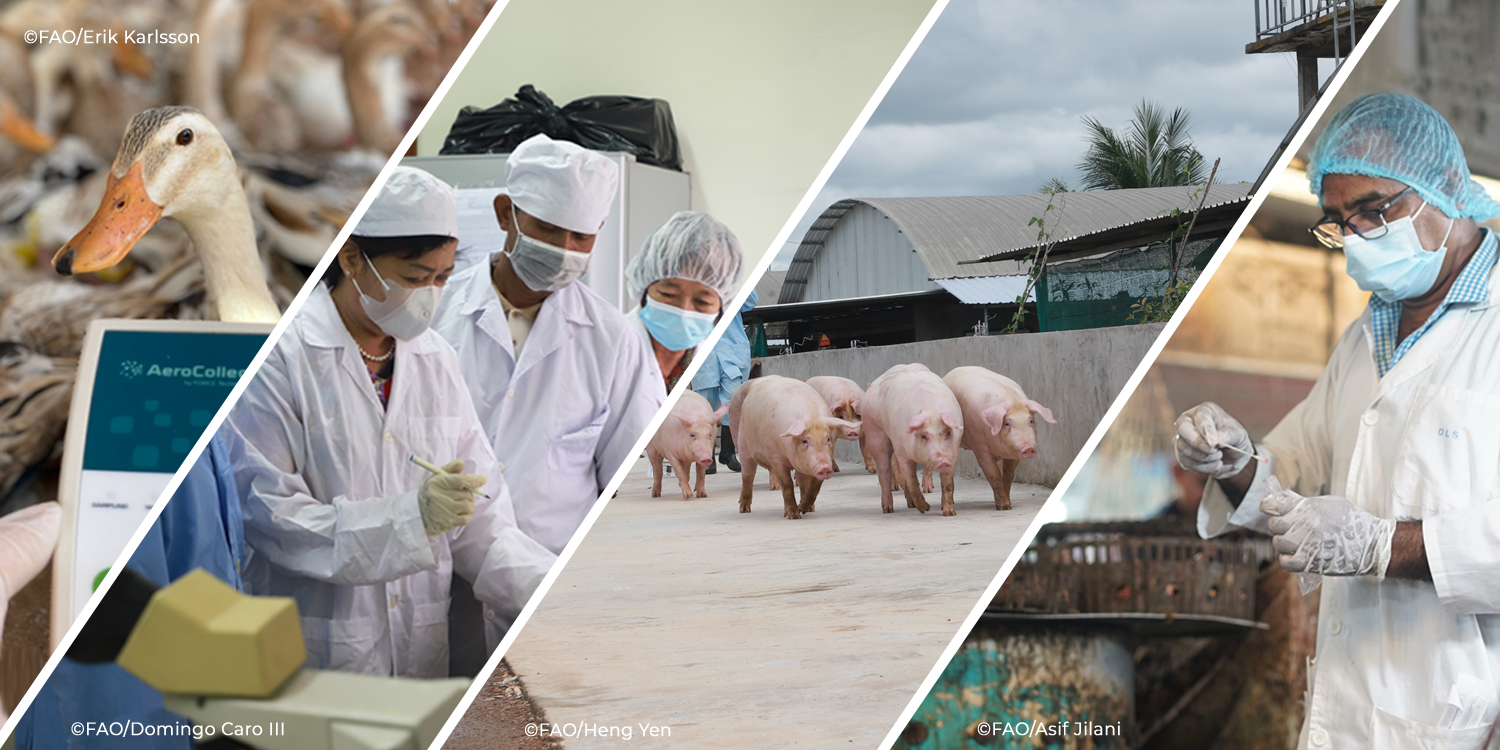
Latest activities from FAO’s regional and country teams.
In this news roundup
AFRICAN SWINE FEVER | ||
|---|---|---|
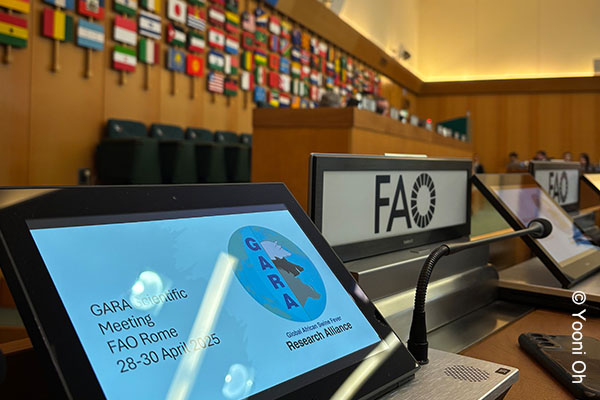 © FAO/Yooni Oh © FAO/Yooni Oh | ASIA AND THE PACIFIC AND VIET NAM FAO hosted the Global African swine fever Research Alliance (GARA) Scientific Meeting at its headquarters in Rome from 28 to 30 April, bringing together nearly 200 global experts to exchange the latest research on ASF epidemiology, diagnostics, vaccines and control strategies. During the meeting, FAO Asia and the Pacific shared regional experiences on risk communication and community-based biosecurity, highlighting the community ASF biosecurity intervention (CABI) programme in the Philippines and beyond. FAO Viet Nam and its research partners contributed national insights, including the use of selective culling to preserve valuable breeding stock in ASF-affected farms and findings related to vaccine-like ASF virus strains. Supported by FAO’s Animal Production and Health Division, the meeting reinforced collaboration and knowledge-sharing to advance global ASF management efforts. | |
|
| THE PHILIPPINES FAO is enhancing the detection of ASF and building emergency response capacities in the Philippines. FAO conducted a training session on local animal disease detection and emergency response in Lucena, Quezon province in collaboration with national and provincial partners from 17 to 21 March. This training, supported by the Ministry of Agriculture, Food and Rural Affairs of the Republic of Korea, included 23 animal health personnel from various municipalities. Participants engaged in practical exercises covering ASF surveillance, disease investigation, sample transport, emergency response, biosecurity and risk communication to strengthen local preparedness and response efforts. | |
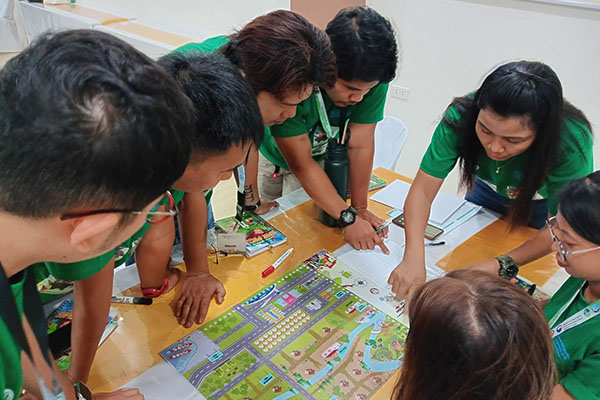 © FAO/Michelle Balbin © FAO/Michelle Balbin | THE PHILIPPINES FAO supported the Bureau of Animal Industry (BAI) – National ASF Prevention and Control Programme in conducting an awareness campaign on ASF in wild pigs in Puerto Galera, Mindoro Oriental, from 22 to 24 April. Supported by the Ministry of Agriculture, Food and Rural Affairs of the Republic of Korea, the training aimed to increase awareness among animal health and wildlife personnel on the risks ASF poses to endemic and endangered wild pig populations. The activity also aimed to strengthen local partnerships for coordinated ASF prevention, detection and response. | |
ANTIMICROBIAL RESISTANCE | ||
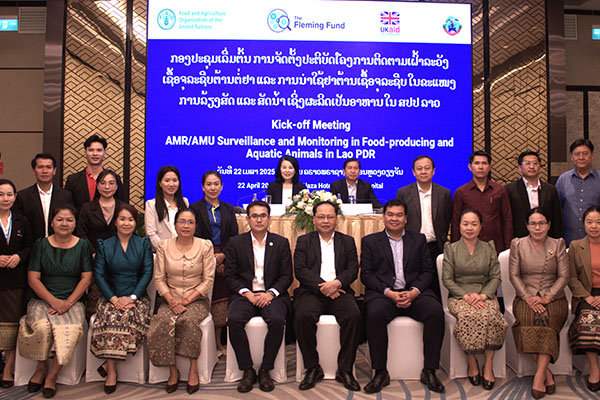 © FAO/Bounmee Maokhamphiou © FAO/Bounmee Maokhamphiou | LAO PEOPLE'S DEMOCRATIC REPUBLIC FAO and the Department of Livestock and Fisheries launched a national initiative on antimicrobial resistance (AMR) and antimicrobial use (AMU) surveillance in food-producing and aquatic animals during an inception workshop held in Vientiane on 22 April. The United Kingdom’s Fleming Fund supports the initiative on broiler chicken surveillance in Vientiane, Louangprabang and Champasak and aquaculture sites in Louangprabang, Savannakhet and Champasak. The workshop brought together key stakeholders to ensure the surveillance framework is technically sound and practically applicable. Participants also agreed to implement surveillance and monitoring programmes in the identified aquaculture sites throughout 2025. | |
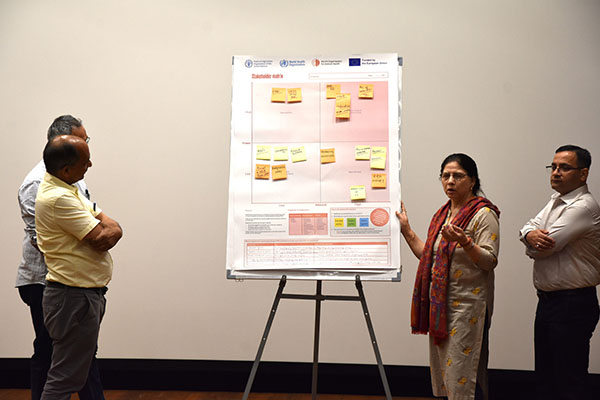 © FAO/Robin Paul © FAO/Robin Paul | ASIA AND THE PACIFIC AND INDIA FAO and the National Dairy Development Board held the second private sector engagement workshop on antimicrobial resistance (AMR) mitigation in Anand, Gujarat, on 21 April. The European Union's AMR Tripartite project supported the event, which aimed to create sustainable public-private partnership models focusing on ethnoveterinary practices, antimicrobial alternatives and sustainable dairy practices. More than 40 experts participated in discussions about strategies for stakeholder mapping, resource mobilization and monitoring frameworks to enhance the private sector's role in controlling AMR. | |
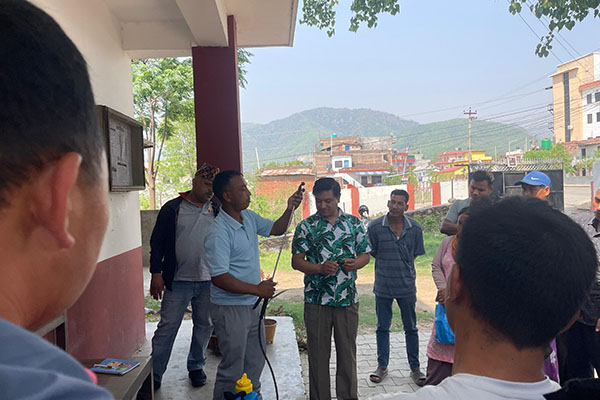 © FAO/Shrijana Khanal © FAO/Shrijana Khanal | NEPAL FAO conducted a two-day training session on biosecurity measures and the responsible use of antimicrobials for small and medium-sized pig farmers in Dang district on 25-26 April, as part of the Pandemic Fund project. The training aimed to improve farmers' understanding of biosecurity practices at the farm level and promote the responsible use of antimicrobials. A total of 26 farmers participated in the training, each receiving a biosecurity kit to help them apply the knowledge they gained. This training was conducted in collaboration with local veterinary agencies. | |
| LAO PEOPLE'S DEMOCRATIC REPUBLIC The Ministry of Health and the World Health Organization hosted a national workshop in Vangvieng from 29-30 April to review and update the draft National Strategic Plan on Antimicrobial Resistance (AMR) for 2026–2030. FAO participated in the workshop and provided technical input to support the strategy's multisectoral design, which encompasses human, animal, plant, food and environmental health. The discussions focused on aligning the plan's vision, mandates, objectives and priority actions. FAO reaffirmed its role as a key technical partner in developing a comprehensive and actionable national AMR strategy using a One Health approach. | |
| Back to top | ||
CAPACITY DEVELOPMENT | ||
|
| NEPAL FAO conducted four training sessions in April focused on biosecurity and the responsible use of antimicrobials. The Pandemic Fund supported 91 small and medium-scale farmers from Nawalparasi, Saptari, Pokhara, and Sunsari who participated in these sessions and received biosecurity kits. The training, which aimed to enhance farmers' capacity to adopt responsible practices, was organized in collaboration with the Department of Livestock Services and local laboratories, which support the mitigation of antimicrobial resistance (AMR) and the prevention of diseases. | |
EPIDEMIOLOGY | ||
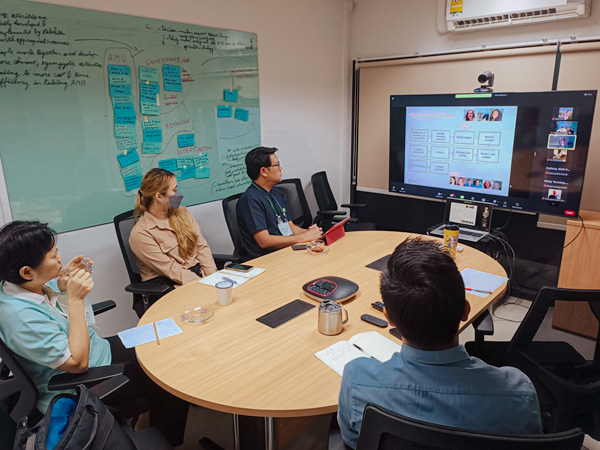 © FAO/Hao Tang | ASIA AND THE PACIFIC FAO hosted a meeting on 8 April to plan strategic enhancements for the Regional Field Epidemiology Training Programme for Veterinarians (R-FETPV). The meeting focused on planning updates to core competencies, mentorship processes and monitoring frameworks to ensure continued relevance and effectiveness. Upcoming consultations and feedback mechanisms will guide improvements to support veterinary epidemiology capacity building across the region. | |
LABORATORY | ||
|
| INDIA FAO visited the Central Military Veterinary Laboratory in Meerut and the Poultry Disease Diagnostic and Surveillance Laboratory (PDDSL) in Namakkal as part of the Pandemic Fund project from 11 to 17 April. This initiative aims to enhance laboratory diagnostics and genomic surveillance capabilities to improve pandemic prevention, preparedness and response through a One Health approach. It is being implemented in collaboration with the Department of Animal Husbandry and Dairying and the Indian Network for Genomic Surveillance (INGeS). FAO evaluated existing infrastructure gaps, improved early warning systems and assessed the potential for including PDDSL in INGeS during the visit. Discussions with representatives and stakeholders at both laboratories provided valuable insights into strengthening India’s animal health surveillance systems. | |
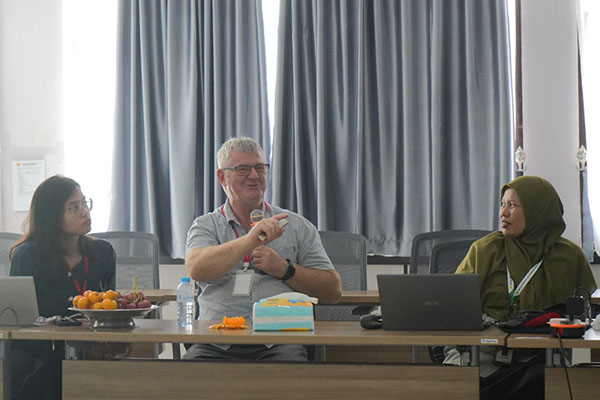 © FAO/Farrah Salmanida © FAO/Farrah Salmanida | INDONESIA FAO, in collaboration with an international biosafety expert, visited the Disease Investigation Center (DIC) in Maros on 28 April to support the ongoing rehabilitation efforts of the laboratory. Building on previous work at DIC Medan, Banjarbaru and Lampung, the visit aimed to review the facility’s design and identify key improvements to enhance biosafety and operational efficiency. The final design is expected to be completed by early May with support from the Pandemic Fund project, with construction scheduled to begin in June 2025. | |
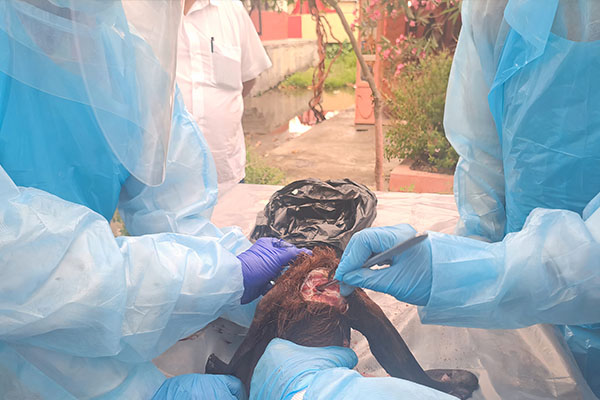 © FAO/Sharmila Chapagai © FAO/Sharmila Chapagai | NEPAL FAO supported the Central Veterinary Laboratory in providing hands-on training from 9 to 10 April in the Mahottari district as part of the Pandemic Fund project. Twenty animal health professionals from local governments and the district veterinary hospital in Mahottari participated in the training, where they learned about sample collection, dispatch, and reporting. This training, coordinated with national and local agencies, aimed to enhance local capacity and strengthen laboratory-based surveillance systems in Nepal. | |
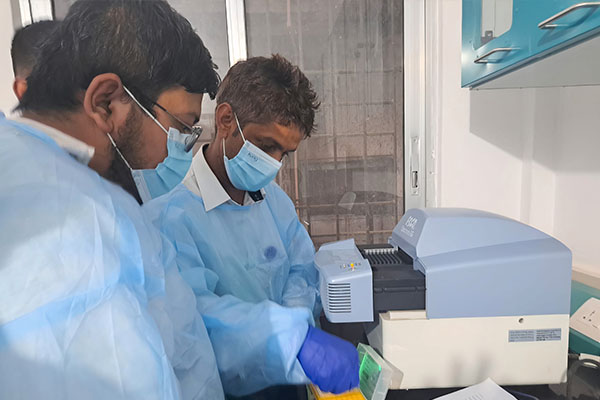 © FAO/Sharmila Chapagai © FAO/Sharmila Chapagai | NEPAL A hands-on training session was conducted at the Veterinary Laboratory in Dhangadhi from 21 to 23 April to enhance local capacity in rabies diagnosis using polymerase chain reaction (PCR) and the fluorescent antibody test (FAT). Organized under the Pandemic Fund project, the training equipped five laboratory personnel with essential diagnostic techniques aimed at improving early detection of rabies. | |
ONE HEALTH | ||
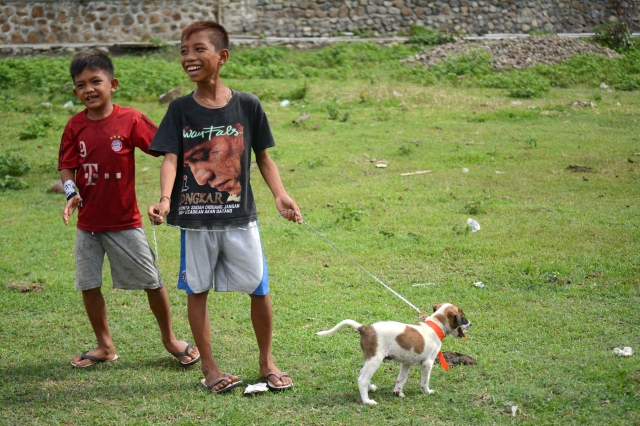 © FAO | LAO PEOPLE'S DEMOCRATIC REPUBLIC A One Health situational analysis workshop took place in Vientiane from 28 to 30 April. The goal was to develop a national One Health Action Plan using the FAO's One Health Assessment Tool (OHAT). The Ministry of Agriculture and Forestry, the Ministry of Health, and the Ministry of Natural Resources and Environment led the workshops, with financial and technical support from the European Union, the French Facility for Global Environment (FFEM), and the French Development Agency (AFD). FAO and its partners provided technical facilitation. Participants completed a national baseline assessment and identified gaps in cross-sectoral implementation during the workshop. Experts from human health, animal health, wildlife and environmental sectors agreed on key priorities, created a step-by-step activity plan and enhanced inter-sectoral coordination and information-sharing mechanisms to operationalize the One Health approach in the country. | |
PARTNERSHIPS | ||
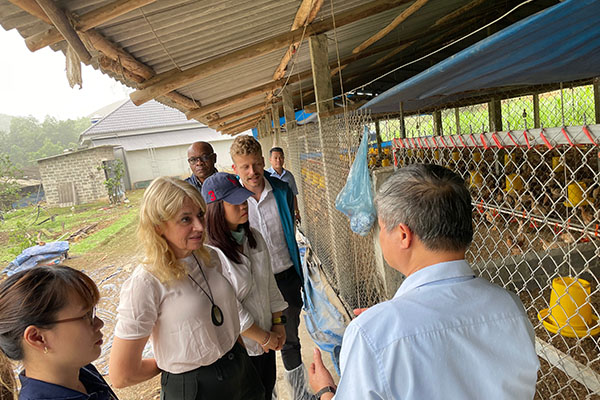 © FAO/Pawin Padungtod | VIET NAM FAO and the United Kingdom reinforced their partnership to combat antimicrobial resistance (AMR) in Viet Nam. In April, supported by the Fleming Fund, the United Kingdom’s Chief Veterinary Officer, Professor Christine Middlemiss, along with delegates from the UK Embassy and Vietnamese officials, visited FAO’s Farmer Field School (FFS) site in Thai Nguyen to observe the model’s impact and its strong potential for nationwide scale-up. Implemented in collaboration with the Department of Animal Health and Production and Thai Nguyen provincial authorities, the FFS promotes responsible antimicrobial use, biosecurity and sustainable farming practices. Discussions highlighted the model’s potential for national scale-up to reduce public health risks and support sustainable agriculture. Read the news here. | |
| INDIA FAO conducted a scoping mission at the Wildlife Institute of India (WII) in Dehradun from 7 to 9 April. This activity is part of the efforts to implement the Pandemic Fund project. The mission aimed to explore collaboration on the Field Training Programme on Wildlife, Environment, Biodiversity, and Ecosystem (FTP-WEBE), which seeks to enhance national workforce capacity in addressing the human-animal-environment interface. Discussions focused on mapping stakeholders, developing a roadmap for implementation, and exploring potential institutionalization under the Ministry of Environment, Forest, and Climate Change to improve long-term pandemic preparedness. | |
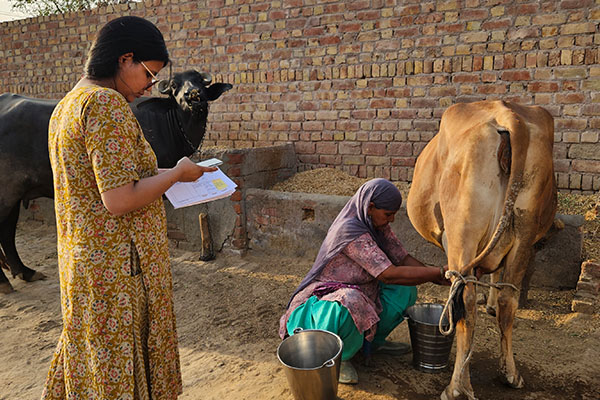 © FAO/Bushra Owaisy © FAO/Bushra Owaisy | INDIA FAO conducted capacity-building and milk testing activities in Ganganagar, Rajasthan, as part of a Technical Cooperation Programme project from 9 to 12 April. Batches of milk were tested, and protocols were refined to ensure the production of clean and safe milk. FAO engaged with farmers and visited the Baani Milk Producers’ Company, a key partner in field testing the clean milk scorecard and mobile-based tool. Valuable feedback on the usability and applicability of the scorecard was gathered through discussions and field visits to the milk pooling point and milk chilling center. These insights will guide further refinement of the tool and support its integration into farmer training to improve milk safety standards. | |
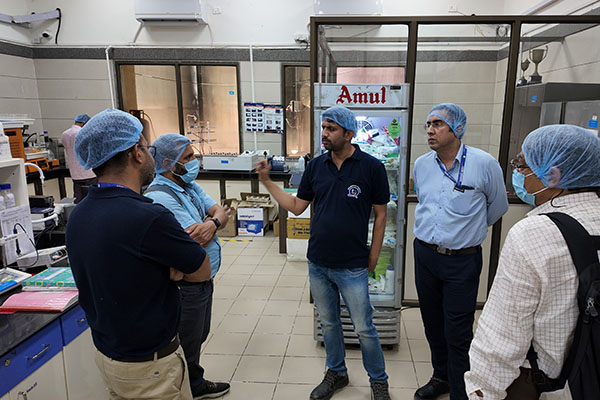 © FAO/Pooja Chowdhary © FAO/Pooja Chowdhary | INDIA FAO conducted a mission to Kutch, Gujarat, 20 to 23 April. The mission was conducted was to assess best practices at Sarhad Dairy for the commercialization of camel milk and to identify opportunities for replicating these approaches in other states. This initiative, carried out under a Technical Cooperation Programme project, involved discussions with camel herder cooperatives at Sarhad Dairy to understand the dynamics of the value chain and the inclusion of small producers. This initiative supports the Government of India’s National Livestock Mission, which aims to promote socially inclusive, nutrition-sensitive, and climate-resilient dairy value chains. The findings from this mission will inform future collaborations, technical support and policy recommendations aimed at strengthening India’s non-bovine milk sector. | |
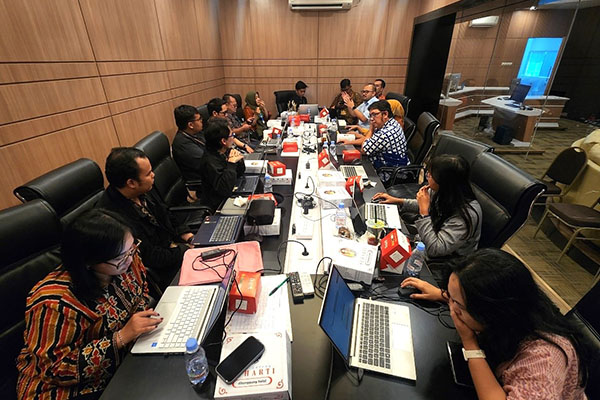 © FAO/Andri Jatikusumah © FAO/Andri Jatikusumah | INDONESIA Indonesia hosted a series of coordination meetings in April involving key ministries to bolster its pandemic response capability. These discussions, which included the Ministry of Agriculture, the Ministry of Forestry, the Coordinating Ministry for Community Empowerment and the Coordinating Ministry of Human Development and Cultural Affairs, aimed to lay out a comprehensive work plan for the Pandemic Fund. The Pandemic Fund seeks to address the multifaceted challenges posed by zoonotic diseases. The meetings served as a platform for stakeholders to align their priorities while clarifying their respective roles and responsibilities within the framework of the Pandemic Fund. FAO will provide technical support focused on crucial areas such as preventing and responding to zoonotic diseases, strengthening laboratory systems and enhancing surveillance protocols under a One Health approach. FAO is promoting enhanced collaboration among ministries. This effort signifies a significant stride towards creating a unified strategy for achieving the project's goals and objectives. Implementation is slated to commence in October 2025. | |
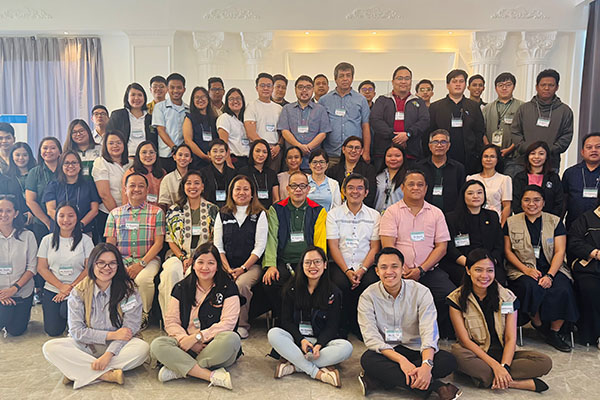 © DOH Philippines © DOH Philippines | THE PHILIPPINES FAO collaborated with the World Health Organization, the World Organisation for Animal Health and national agencies to conduct a multisectoral after-action review from 9 to 11 April. This review examined the response measures taken after the detection of Q fever in goats in Marinduque. It aimed to identify best practices, gaps and future priorities. This initiative reinforces collaborative efforts under the One Health approach to enhance preparedness and response to zoonotic diseases. | |
SURVEILLANCE | ||
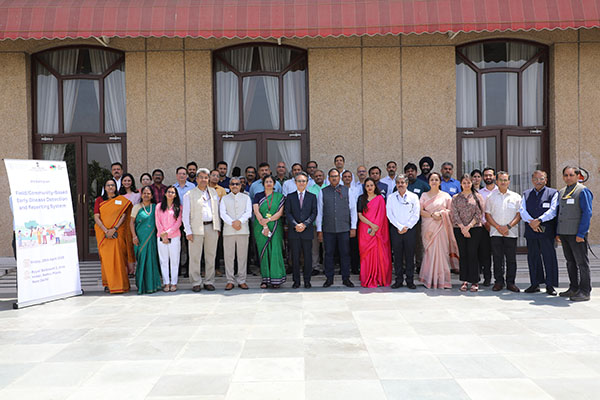 © FAO/D. Solanki © FAO/D. Solanki | INDIA FAO and the Department of Animal Husbandry and Dairying hosted a stakeholder consultation workshop on 25 April to further develop a mobile application designed to enhance community-based surveillance (CBS) for animal health threats. This workshop, organized as part of the Pandemic Fund project, brought together over 40 experts from various sectors, including government, veterinary services, wildlife organizations, non-governmental organizations and academia. The application aims to incorporate CBS into national digital surveillance systems, such as Bharat Pashudhan and NADRES, improving the detection and response to zoonotic disease outbreaks. | |
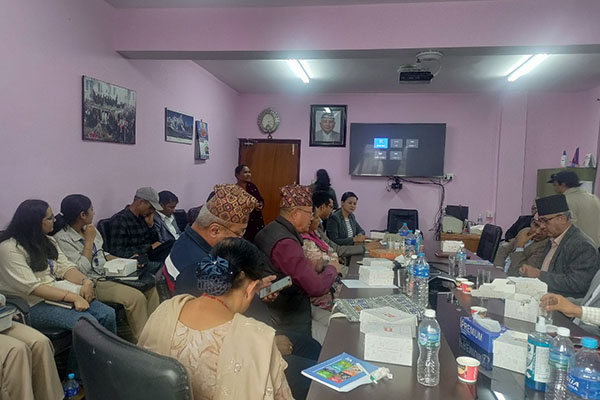 © FAO/Nabin Poudel | NEPAL FAO held a final workshop on the pig value chain study on 11 April, with support from the Pandemic Fund. FAO co-organized the workshop with the Department of Livestock Services and brought together senior officials and stakeholders from the value chain to discuss the findings and offer feedback. The insights gathered during this workshop will help shape final recommendations to improve disease prevention and management in Nepal’s pig sector. | |
|
| ASIA AND THE PACIFIC On 25 February, FAO participated in the Technical Assistance for Data and Evidence Use (TADEU) Asia stakeholder meeting in Vientiane, sharing experiences in AMR management. The meeting introduced an AMR surveillance costing tool developed by the TADEU project, funded by the International Vaccine Institute through the eSHIFT partner network, has been established to measure the impact of an antimicrobial stewardship program, estimate AMR economic burden and compare costs and outputs of AMR surveillance. Discussions focused on improving the tool’s application in Lao People’s Democratic Republic to support antimicrobial stewardship and assess AMR’s economic impact. | |
- Learn more about our work on African swine fever here.
- Learn more about our work on antimicrobial resistance here.
- Learn more about our work on capacity development here.
- Learn more about our work on epidemiology here.
- Learn more about our work on capacity development of laboratory here.
- Learn more about our work on One Health here.
- Learn more about our partnerships here.
- Learn more about our work on surveillance here.
Subscribe to our biweekly update here.

_thumbs.jpg?sfvrsn=f9d5fdf1_1)
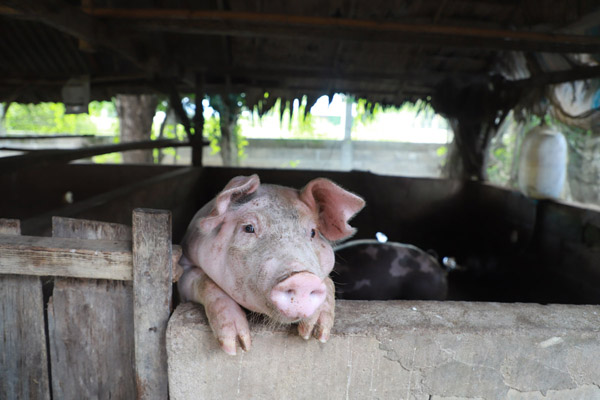 © FAO
© FAO 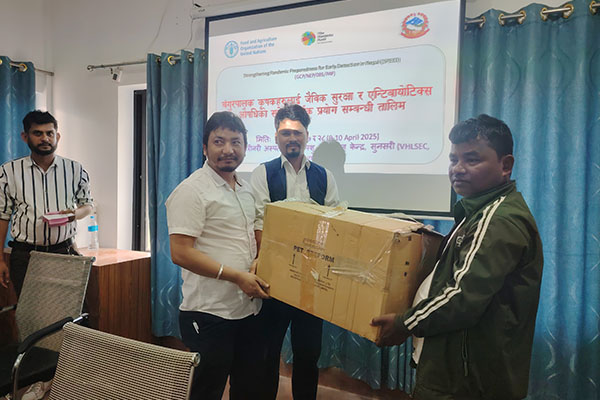 © FAO/Swochhal Prakash Shrestha
© FAO/Swochhal Prakash Shrestha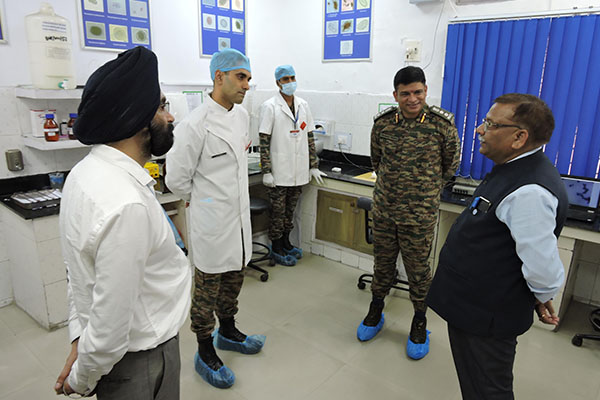 © FAO/Vikram Vashist
© FAO/Vikram Vashist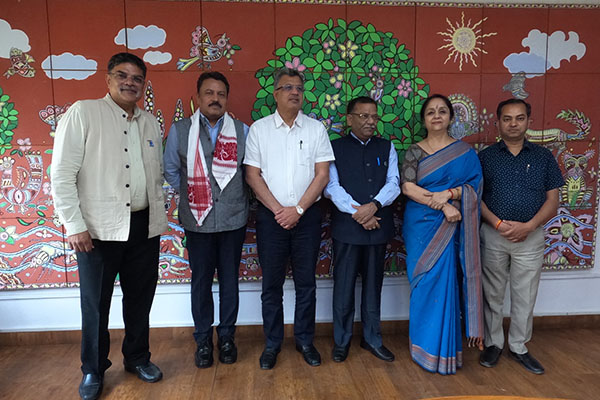 © FAO/Acty George
© FAO/Acty George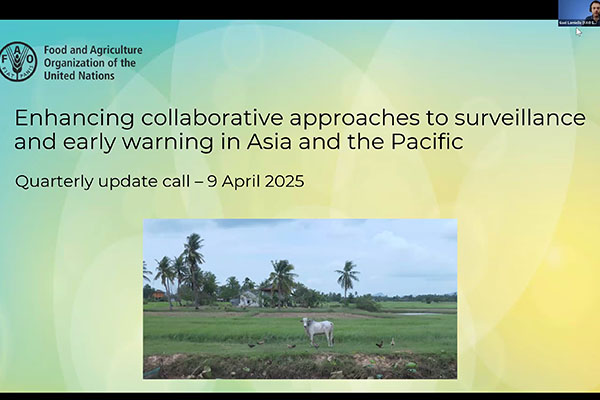 © FAO/Gael Lamielle
© FAO/Gael Lamielle